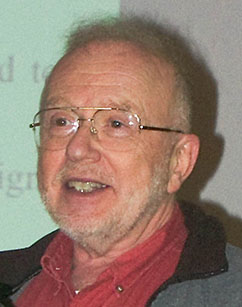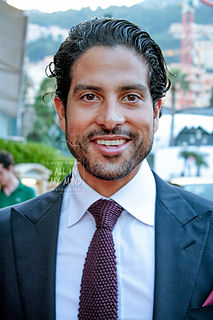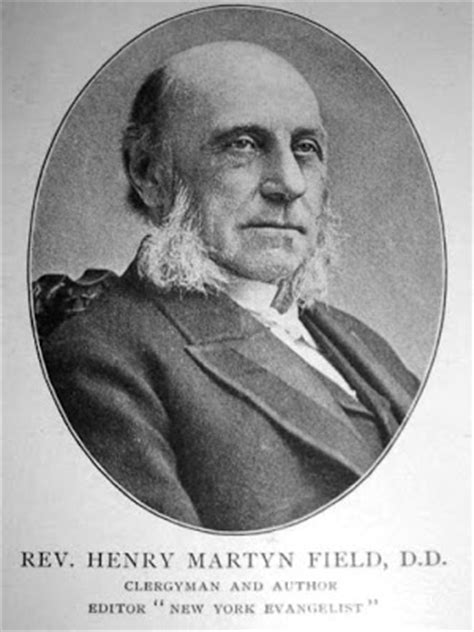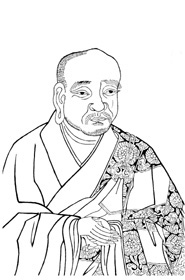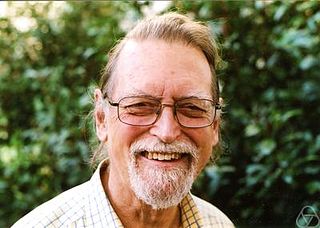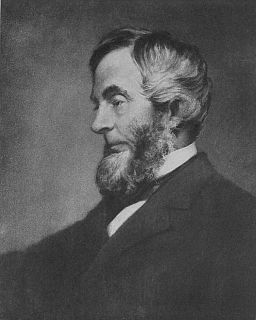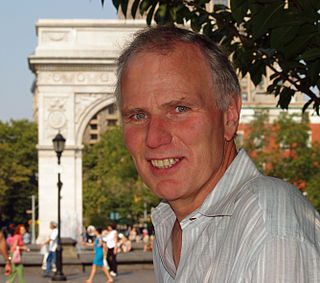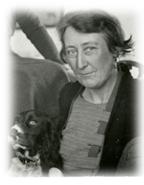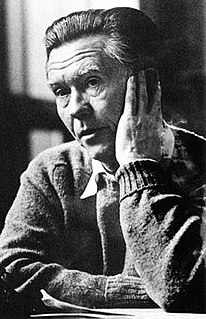Top 1200 Relation Quotes & Sayings - Page 19
Explore popular Relation quotes.
Last updated on April 22, 2025.
S and M is only the expression in the bedroom of an oppressive-submissive relation which can happen also in the kitchen or at the factory, can happen between people of any gender. There is obviously something titillating about these relationships, but it isn't the sexual components that makes them ugly, they're uglier elsewhere. Nothing sexual is depraved. Only cruelty is depraved, and that's another matter.
The degree of confirmation assigned to any given hypothesis is sensitive to properties of the entire belief system... simplicity, plausibility, and conservatism are properties that theories have in virtue of their relation to the whole structure of scientific beliefs taken collectively. A measure of conservatism or simplicity would be a metric over global properties of belief systems.
A relation is formed betwixt every man and the fruits of his own labour, the very thing we call property, which he himself is sensible of, and of which every other is equally sensible. Yours and mine are terms in all languages, familiar among savages, and understood even by children. This is a fact, which every human creature can testify.
The usual way the people are taught to think in amerika is that each subject is in a little compartment and has no relation to any other subject. For the most part, we receive fragments of unrelated knowledge, and our education follows no logical format or pattern. It is exactly this kind of education that produces people who don’t have the ability to think for themselves and who are easily manipulated.
But it can also happen, if will and grace are joined, that as I contemplate the tree I am drawn into a relation, and the tree ceases to be an It. . . . Does the tree then have consciousness, similar to our own? I have no experience of that. But thinking that you have brought this off in your own case, must you again divide the indivisible? What I encounter is neither the soul of a tree nor a dryad, but the tree itself.
For creation is not a change, but that dependence of the created existence on the principle from which it is instituted, and thus is of the genus of relation; whence nothing prohibits it
being in the created as in the subject. Creation is thus said to be a kind of change, according to the way of understanding, insofar as our intellect accepts one and the same thing as not
existing before and afterwards existing.
We come no nearer the infinitude of the creative power of God, if we enclose the space of its revelation within a sphere described with the radius of the Milky Way, than if we were to limit it to a ball an inch in diameter. All that is finite, whatever has limits and a definite relation to unity, is equally far removed from the infinite... Eternity is not sufficient to embrace the manifestations of the Supreme Being, if it is not combined with the infinitude of space.
Astrology is of particular interest to the psychologist, since it contains a sort of psychological experience which we call projected - this means that we find the psychological facts as it were in the constellations. This originally gave rise to the idea that these factors derive from the stars, whereas they are merely in a relation of synchronicity with them. I admit that this is a very curious fact which throws a peculiar light on the structure of the human mind.
The media want to maintain their intimate relation to state power. They want to get leaks, they want to get invited to the press conferences. They want to rub shoulders with the Secretary of State, all that kind of business. To do that, you've got to play the game, and playing the game means telling their lies, serving as their disinformation apparatus.
Rumors and reports of man's relation with animals are the world's oldest news stories, headlined in the stars of the zodiac, posted on the walls of prehistoric caves, inscribed in the languages of Egyptian myth, Greek philosophy, Hindu religion, Christian art, our own DNA. Belonging within the circle of mankind's intimate acquaintance ... constant albeit speechless companions, they supplied energies fit to be harnessed or roasted.
Socialism may be worthless as a scheme, but it is not meaningless as a symptom. Rousseau's theory of the origin of society, of the social contract, and of a cure for all the social evils by a return to a state of nature, had, as we all know now, no more relation to fact than the dreams of an illiterate drunkard; but they were not without value as a vague and symbolical expression of certain evils from which the France of his day was suffering.
In terms of technology and science, tomorrow does know more than yesterday; but when it comes to emotions, living with uncertainty, terror, I'm not sure we know any more than Shakespeare did, or the Buddha. And the power of new things - the iPhone or Facebook - is so strong and intoxicating that we sometimes forget that none of them can fundamentally change our relation to ourselves and to what matters.
Math just wasn't my favorite. I didn't get how important math is and how it relates to real life. That's why I think I was turned off to it. Once I got down arithmetic and a little bit of algebra, I think I checked out. As I've gotten older, I think there's a lot more relation to math. English was my favorite subject.
The parts in which I elaborated on the sexual life of the doctor herself, the personal life, her relation with men [in Memoirs of a Woman Doctor]. All this. They left only some very, very minute parts. And also the political, the political element in it. So in a way, they cut pieces that to my mind were very important.
When van Gogh paints sunflowers, he reveals, or achieves, the vivid relation between himself, as man, and the sunflower, as sunflower, at that quick moment of time. His painting does not represent the sunflower itself. We shall never know what the sunflower itself is. And the camera will visualize the sunflower far more perfectly than van Gogh can.
Sometimes people stumble over this vastness in relation to the apparent insignificance of man. It does seem to make us infinitesimally small. But the meaning of this magnitude is not mainly about us. It’s about God… The reason for ‘wasting’ so much space on a universe to house a speck of humanity is to make a point about our maker, not us.
A sermon is a form that yields a certain kind of meaning in the same way that, say, a sonnet is a form that deals with a certain kind of meaning that has to do with putting things in relation to each other, allowing for the fact of complexity reversal, such things. Sermons are, at their best, excursions into difficulty that are addressed to people who come there in order to hear that.
It makes that a virtue which is not a virtue, and that a crime which is not a crime. Religion consists in a round of observances that have no relation whatever to natural goodness, but which rather exclude it by being a substitute for it. Penances and pilgrimages take the place of justice and mercy, benevolence and charity. Such a religion, so far from being a purifier, is the great corrupter of morals.
I love that "furious and gorgeous barrage." That helps me see the relation between the introduction and the book's final section, where writing about a fire (and about the attempt to understand the event), also becomes an attempt to understand how writing might get closer to the fire, in so many ways.
They [photographs] teach you about your own unraveling past, or about the immediacy of yesterday. They show you what you look at. If you take a photograph, you've been responsive to something, and you looked hard at it. Hard for a thousandth of a second, hard for ten minutes. But hard, nonetheless. And it's the quality of that bite that teaches you how connected you were to that thing, and where you stood in relation to it, then and now.
When one is rising, standing, walking, doing something, stopping, one should constantly concentrate one's mind on the act and the doing of it, not one ones' relation to the act or its character or value... One should simply practice concentration of the mind on the act itself, understanding it to be an expedient means for attaining tranquility of mind, realization, insight, and wisdom.
Art lives on the mental plane (the real painting is not the set of dry pigments on the canvas nor is a symphony the sequence of sound waves that convey it to our ear) but, as the post-modernists insist, is reinterpreted in new contexts by each appreciator. As for gossip, which includes the vast majority of our thoughts, its essence is its relation to a unique local part of time and space.
Wealth brings noble opportunities, and competence is a proper object of pursuit; but wealth, and even competence, may be bought at too high a price. Wealth itself has no moral attribute. It is not money, but the love of money, which is the root of all evil. It is the relation between wealth and the mind and the character of its possessor which is the essential thing.
In the "commentatio" (note presented to the Russian Academy) in which his theorem on polyhedra (on the number of faces, edges and vertices) was first published Euler gives no proof. In place of a proof, he offers an inductive argument: he verifies the relation in a variety of special cases. There is little doubt that he also discovered the theorem, as many of his other results, inductively.
The problem with the United States is that it is making an increased use of drones/Predators [which are] particularly prominently used now in relation to Pakistan and Afghanistan...My concern is that drones/Predators are being operated in a framework which may well violate international humanitarian law and international human rights law.
The second [argument about motion] is the so-called Achilles, and it amounts to this, that in a race the quickest runner can never overtake the slowest, since the pursuer must first reach the point whence the pursued started, so that the slower must always hold a lead.
Statement of the Achilles and the Tortoise paradox in the relation of the discrete to the continuous.; perhaps the earliest example of the reductio ad absurdum method of proof.
Wherever the Industrial system has reached its second generation it is threatened by two mortal perils. The first is the demand by an organized proletariat for sustenance without relation to the product of its labor; a demand which threatens the very existence of PROFIT (on the necessary presumption of which Capitalism reposes). The second, and immediately graver danger is that of a revolt for the confiscation of the means of production.
There are instances: [Henry David] Thoreau read [John] Wordsworth, [John] Muir read Thoreau, Teddy Roosevelt read Muir, and you got national parks. It took a century for this to happen, for artistic values to percolate down to where honoring the relation of people's imagination to the land, or beauty, or to wild things, was issued in legislation.
Every artist is linked to a mistake with which he has a particular intimate relation. There is the mistake of Homer, of Shakespeare — which is perhaps, for both, the fact of not existing. Every art draws its origin from an exceptional fault, every work is the implementation of this original fault, from which come to us a new light and a risky conception of plenitude.
The chief evil with relation to the body is love for the body and pitying it. This takes away all the soul's authority over the body and makes the soul the slave of the body. And on the contrary, one who does not spare the body will not be disturbed in whatever he does by apprehensions born of blind love of life. How fortunate is one who is trained to this from childhood!
But myth is something else than an explanation of the world, of history, and of destiny. Myth expresses in terms of the world - that is, of the other world or the second world - the understanding that man has of himself in relation to the foundation and the limit of his existence. Hence to demythologize is to interpret myth, that is, to relate the objective representations of the myth to the self-understanding which is both shown and concealed in it.
We are, all of us, exploring a world none of us understands...searching for a more immediate, ecstatic, and penetrating mode of living...for the integrity, the courage to be whole, living in relation to one another in the full poetry of existence. The struggle for an integrated life existing in an atmosphere of communal trust and respect is one with desperately important political and social consequences...Fear is always with us, but we just don't have time for it.
With an abstract idea it is possible to enter into a relation of formal knowledge, to become enthusiastic about it, and perhaps even to put it into practice; but it can never be followed in personal obedience. Christianity without the living Christ is inevitably Christianity without discipleship, and Christianity without discipleship is always Christianity without Christ.
Whereas I think: I’m lying here in a haystack... The tiny space I occupy is so infinitesimal in comparison with the rest of space, which I don’t occupy and which has no relation to me. And the period of time in which I’m fated to live is so insignificant beside the eternity in which I haven’t existed and won’t exist... And yet in this atom, this mathematical point, blood is circulating, a brain is working, desiring something... What chaos! What a farce!
Still, I also know that most people, including me, tend to applaud the wrong things: the showy, dramatic record-setting sprint rather than the years of dogged preparation or the unwavering grace displayed during a string of losses. Applause, then, never bore much relation to the reality of my life as an astronaut, which was not all about, or even mostly about, flying around in space.
I have a way to photograph. You work with space, you have a camera, you have a frame, and then a fraction of a second. It's very instinctive. What you do is a fraction of a second, it's there and it's not there. But in this fraction of a second comes your past, comes your future, comes your relation with people, comes your ideology, comes your hate, comes your love - all together in this fraction of a second, it materializes there.
The oldest problem in economic education is how to exclude the incompetent. A certain glib mastery of verbiage-the ability to speak portentously and sententiously about the relation of money supply to the price level-is easy for the unlearned and may even be aided by a mildly enfeebled intellect. The requirement that there be ability to master difficult models, including ones for which mathematical competence is required, is a highly useful screening device.
Suddenly, after years of television being the poor relation and film being everything, it now feels like film is a conjuring trick. It's like, "Oh, my god, how are you going to do that in 90 minutes, as opposed to eight hours?! I've got so little time to do this!" It becomes an art form, in itself. Doing both helps you do each one.
Not that I play guitar anywhere near as well as she sings, but I think I have always had a tendency to play solos the same way, in emotional relation to the structure of the song. I choose simple lines, and only play what seems emotionally relevant, and often express that emotion in time, that is in play or resistance to the set time of the song.
I keep trying to find ways to shift the viewer's attention away from the object they are looking at and toward their own perceptual process in relation to that object. The question for me always is: how can I make you aware of your own activity of looking, instead of losing your attention to thoughts about what it is that you are looking at?
There is nothing to be known about anything except an initially large, and forever expandable, web of relations to other things. Everything that can serve as a term of relation can be dissolved into another set of relations, and so on for ever. There are, so to speak, relations all the way down, all the way up, and all the way out in every direction: you never reach something which is not just one more nexus of relations.
To will the obligatory in relation to death is to fall in line with the major immutable cycles of Nature, especially human nature, and to understand that (whether or not there is a purpose or meaning to life or a life of the spirit beyond the life of the body) no one, absolutely no one, escapes being finite and mortal. And knowing this, and then to accept it, to will it, and not to be in an unnecessary state of angst or rebellion or terror over it.
Skepticism is unbelief in cause and effect. A man does not see, that, as he eats, so he thinks: as he deals, so he is, and so he appears; he does not see that his son is the son of his thoughts and of his actions; that fortunes are not exceptions but fruits; that relation and connection are not somewhere and sometimes, but everywhere and always; no miscellany, no exemption, no anomaly,--but method, and an even web; and what comes out, that was put in.
In no other field of scientific endeavor do otherwise intelligent people feel free to make public claims based on prejudice and ignorance. Yet in relation to psychic phenomena, committed materialists feel free to disregard the evidence and behave irrationally and unscientifically, while claiming to speak in the name of science and reason. They abuse the authority of science and bring rationalism into disrepute.
Immediate knowledge tells us only that God is, not what he is. But if God is not an empty Being beyond the stars, he must be present in the communion of human spirits, and, in his relation to these, he is the One Spirit who pervades reality and thought. Hence there can be no final separation between our immediate consciousness of him and our mediated knowledge of reality.
In trying to evaluate Hopkins' unique contribution to biochemistry it may perhaps be said that he alone amongst his contemporaries succeeded in formulating the subject. Among others whose several achievements in their own fields may have surpassed his, no one has ever attempted to unify and correlate biochemical knowledge so as to form a comprehensible picture of the cell and its relation to life, reproduction and function.
The Winter Photograph was my Ariadne, not because it would help me discover a secret thing (monster or treasure), but because it would tell me what constituted that thread which drew me toward Photography. I had understood that henceforth I must interrogate the evidence of Photography, not from the viewpoint of pleasure, but in relation to what we romantically call love and death.
It is not inertia alone that is responsible for human relationships repeating themselves from case to case, indescribably monotonous and unrenewed: it is shyness before any sort of new, unforeseeable experience with which one does not think oneself able to cope. But only someone who is ready for everything, who excludes nothing, not even the most enigmatical will live the relation to another as something alive.
In this choice of inheritance we have given to our frame of polity the image of a relation in blood; binding up the constitution of our country with our dearest domestic ties; adopting our fundamental laws into the bosom of our family affections; keeping inseparable and cherishing with the warmth of all their combined and mutually reflected charities, our state, our hearths, our sepulchres, and our altars.
Love is fed by the imagination, by which we become wiser than we know, better than we feel, nobler than we are: by which we can see life as a whole, by which and by which alone we can understand others in their real and their ideal relation. Only what is fine, and finely conceived can feed love. But anything will feed hate.
I have this feeling of wending my way or plundering through a mysterious jungle of possibilities when I am writing. This jungle has not been explored by previous writers. It never will be explored. It's endlessly varying as we progress through the experience of time. These words that occur to me come out of my relation to the language which is developing even as I am using it.
Mr. Beerbohm in his way is perfect ... He has brought personality into literature, not unconsciously and impurely, but so consciously and purely that we do not know whether there is any relation between Max the essayist and Mr. Beerbohm the man. We only know that the spirit of personality permeates every word that he writes ... He is without doubt the prince of his profession.












